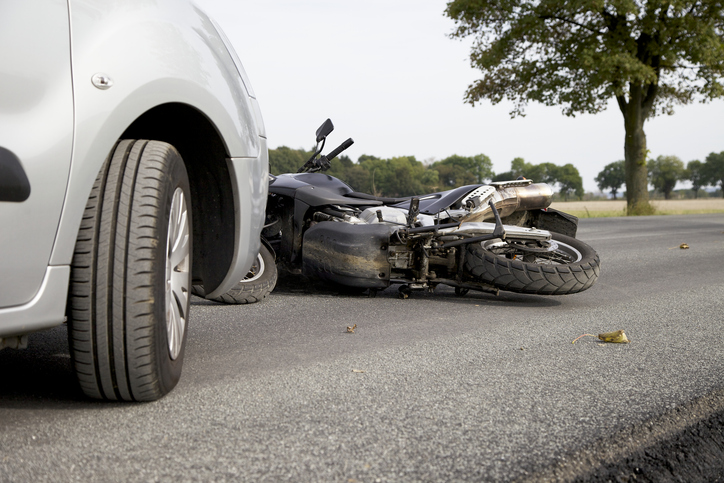 Riding a motorcycle on Georgia’s scenic highways can be exhilarating, but safety should always come first. One of the most critical parts of that safety is understanding and following Georgia’s motorcycle helmet laws. Whether you’re a seasoned rider or just getting started, knowing the rules can help you avoid fines—and more importantly, protect your life.
Riding a motorcycle on Georgia’s scenic highways can be exhilarating, but safety should always come first. One of the most critical parts of that safety is understanding and following Georgia’s motorcycle helmet laws. Whether you’re a seasoned rider or just getting started, knowing the rules can help you avoid fines—and more importantly, protect your life.
At Davies Hothem Injury Law, we’ve helped countless riders and families navigate the aftermath of serious motorcycle crashes. Below, our Georgia motorcycle accident attorneys explain five key facts every rider should know about helmet laws in the state.
1. Georgia Has a Universal Helmet Law
Unlike some states that allow adults to ride without helmets under certain conditions, Georgia enforces a universal helmet law. This means every motorcycle rider and passenger—regardless of age or experience—must wear an approved helmet whenever the bike is moving.
This law is outlined in O.C.G.A. § 40-6-315. It applies to all motorcycles, scooters, and even some mopeds that meet the state’s definition of a motor-driven cycle. The rule isn’t just about compliance—it’s about survival. According to the National Highway Traffic Safety Administration (NHTSA), helmets reduce the risk of head injury by 69% and the risk of death by 42%.
If you’re involved in a crash and not wearing a helmet, you could face not only penalties but also challenges when pursuing compensation for your injuries.
2. Your Helmet Must Meet Federal Safety Standards
Simply wearing any helmet isn’t enough. Georgia law requires that motorcycle helmets meet U.S. Department of Transportation (DOT) standards. Approved helmets will have a DOT sticker permanently affixed to the back, indicating compliance with federal testing requirements.
These helmets are designed to absorb impact, protect against penetration, and stay securely in place during an accident. You can verify proper safety certification through the NHTSA’s guide to choosing the right helmet.
Riders should also avoid novelty or “beanie” helmets that may look stylish but don’t provide adequate protection. If it doesn’t have a DOT label, it doesn’t meet Georgia’s safety standards—and wearing one could still result in a ticket.
3. Face Shields and Eye Protection Are Also Required
In addition to helmets, Georgia law requires that riders have eye protection unless their motorcycle has a windshield. This means wearing either a face shield on your helmet or protective goggles. The goal is to prevent debris, insects, or wind from obstructing your vision while riding.
While some riders overlook this rule, failing to comply can lead to fines. More importantly, it’s a crucial part of safe riding. Reduced visibility is a leading cause of motorcycle accidents, which are often catastrophic. Learn more about the common causes of motorcycle accidents in Georgia and how to protect yourself on the road.
4. Not Wearing a Helmet Can Affect Your Injury Claim
One of the biggest misconceptions among riders is that failing to wear a helmet only results in a citation. The truth is, it can have significant consequences if you’re injured in a crash and decide to file a personal injury claim.
Georgia follows a modified comparative negligence rule, meaning your compensation can be reduced if you’re found partially at fault for your injuries. If a court determines that your head injury could have been prevented or less severe had you worn a helmet, your recovery could be limited.
This is where experienced legal representation becomes critical. The attorneys at Davies Hothem Injury Law understand how insurance companies use helmet law violations to minimize payouts. Our team works to ensure riders get fair treatment and full compensation, even in complex cases.
5. Safe Riding Goes Beyond the Helmet
While helmet use is required, true motorcycle safety goes much further. Wearing protective gear, maintaining your bike, and practicing defensive driving all play essential roles in reducing your risk of serious injury.
Here are a few practical tips for Georgia riders:
- Wear full protective gear including gloves, a jacket, pants, and boots made for riding.
- Stay visible by using reflective clothing and keeping your lights on—even during the day.
- Take a motorcycle safety course to sharpen your skills and qualify for possible insurance discounts.
- Never ride impaired—Georgia has strict DUI laws that apply to motorcyclists as well.
Georgia’s helmet laws are designed to protect lives, not limit freedom. Understanding and following these regulations helps keep you safe and preserves your right to recovery if an accident occurs.
Injured in a Georgia Motorcycle Accident? We Can Help
If you’ve been injured in a motorcycle accident, you deserve to understand your rights and options. The aftermath of a crash can be overwhelming, especially when medical bills, insurance issues, and recovery all collide at once.
At Davies Hothem Injury Law, we’re passionate about protecting Georgia’s motorcyclists. Our legal team provides personalized support to help injured riders get the compensation they deserve for medical expenses, lost wages, and pain and suffering.
We invite you to reach out for a free consultation with our Gainesville motorcycle accident attorneys. We’ll review your case, explain how helmet laws might impact your claim, and guide you through the next steps toward recovery.
Contact us today or visit our Motorcycle Accident Attorney Gainesville page to learn more about how we can help you after a crash.
